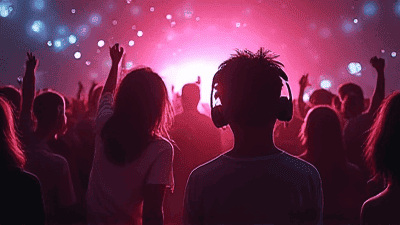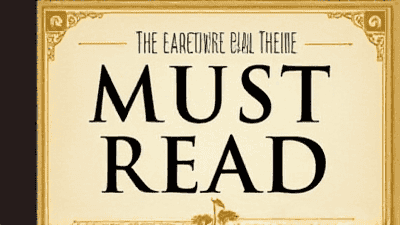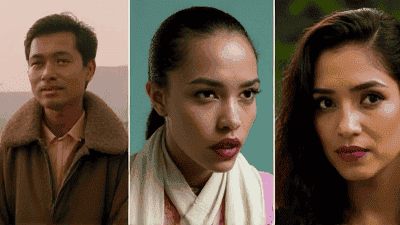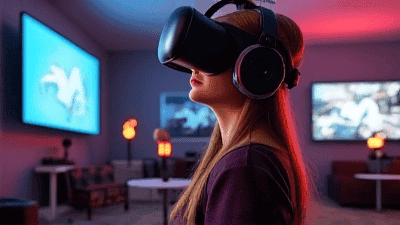
In recent years, the landscape of pop culture has undergone a profound transformation, largely influenced by the rise of social media and digital content creators. The emergence of influencers—individuals who leverage their online presence to shape trends, opinions, and consumer behavior—has altered the way we understand and engage with culture. From Instagram to TikTok, influencers have become powerful voices, driving everything from fashion to politics.
The Rise of Influencers
To fully appreciate the impact of influencers on pop culture, it’s essential to understand the factors that have contributed to their rise. The growth of social media platforms, particularly over the last decade, has created a new space for individuals to express themselves, connect with audiences, and share their passions. Here are some pivotal moments that played a significant role in the emergence of influencers:
Social Media Proliferation
Social media platforms such as Facebook, Instagram, YouTube, and TikTok offer unique opportunities for individuals to create content and share their lives. With millions of users actively engaging daily, these platforms have enabled anyone with a smartphone and a compelling story to reach a wide audience. This democratization of content creation marked a shift from traditional celebrity culture, where fame was limited to television and movies, to a more inclusive environment where everyday people could become influencers.
The Shift in Marketing Strategy
As businesses began to recognize the potential of social media, they started to abandon traditional advertising methods in favor of influencer marketing. Companies quickly realized that influencers often have loyal and engaged fan bases, making their endorsements more effective than traditional advertising. Through collaborations and partnerships, brands gained access to niche audiences and were able to leverage the personal connections that influencers maintained with their followers.
Authenticity and Relatability
One of the hallmarks of successful influencers is their ability to connect with their audience in an authentic way. Unlike traditional celebrities, who often seemed out of reach, influencers share their lives, interests, and struggles candidly. This relatability does not only build trust but also fosters a sense of community among followers. Audiences engage with influencers as if they are friends, leading to significant impacts on trends and cultural movements.
The Evolution of Content Creation
As the field of content creation developed, influencers began to utilize various forms of media, including videos, blogs, and podcasts, to reach their audiences. Each of these formats allows for different styles of engagement—from quick, entertaining TikTok videos to in-depth YouTube discussions. This variety has contributed to a more vibrant and diverse online culture, engaging users across multiple platforms and demographics.
Influencers and Fashion

One of the most significant areas where influencers have made a marked impact is within the fashion industry. The ability of influencers to showcase clothing and accessories in their everyday lives has transformed how brands market their products. Here are a few notable ways in which influencers have reshaped fashion:
Trend Setting
Influencers have the power to set trends in real-time. A single post can ignite a viral trend, as followers scramble to emulate the styles they see. For example, when a prominent influencer wears a certain outfit, it often leads to increased sales for that brand. This phenomenon has led to a shift in the fashion industry's focus from traditional runway shows to the digital world, where influencer marketing has become a pivotal aspect of brand strategy.
Empowering Emerging Designers
Many influencers champion emerging designers, providing them a platform to showcase their work to a broader audience. This not only promotes creativity and diversity in fashion but also allows lesser-known brands to thrive in a market that was once dominated by high-end labels. Several influencer-led collaborations have launched new designers into the spotlight, highlighting the significance of these digital creators in shaping the modern fashion landscape.
Inclusivity and Body Positivity
Influencers have been instrumental in pushing for body positivity and inclusivity in fashion. Many influencers use their platforms to challenge conventional beauty standards, promoting self-acceptance and diversity in body sizes, shapes, and skin tones. This shift has prompted brands to reevaluate their marketing strategies and become more inclusive in their offerings, leading to a broader representation of beauty in popular culture.
Influencers and Music
The music industry has also felt the influence of social media and content creators. As influencers begin to intersect with music, we see emerging trends that redefine how music is consumed and marketed:
Viral Challenges and Trends
Platforms like TikTok have redefined music promotion, with influencers creating viral dance challenges or trends that catapult songs to popularity. An example of this is "Old Town Road" by Lil Nas X, which gained immense popularity on TikTok before topping charts globally. Influencers used the platform to create their own dances and interpretations, further solidifying the song's cultural significance.
Collaborations and Cross-Promotion
Musicians have increasingly collaborated with social media influencers to tap into their extensive reach. These partnerships can include everything from influencers appearing in music videos to initiating promotional campaigns on their channels. By aligning themselves with influencers, artists can more effectively engage with younger audiences and build hype for new releases.
Grassroots Movement
Social media also allows for a more organic approach to music discovery. Influencers and their followers often opt for lesser-known artists, helping to cultivate grassroots movements. As audiences turn to influencers for music recommendations, entire communities form around shared interests, resonating with the principles of authenticity and relatability.
Influencers and Social Issues

One of the most profound impacts of influencers on pop culture has been their ability to champion social issues. Influencers have emerged as important figures in raising awareness and driving social change, utilizing their platforms to address a range of issues:
Activism and Awareness
Many influencers have leveraged their platforms to engage in activism, addressing topics like climate change, racial equality, mental health, and LGBTQ+ rights. By using their reach to inform and mobilize their audiences, influencers encourage large-scale conversations and inspire social movements. The Black Lives Matter movement saw numerous influencers taking a stance, sharing educational resources, and encouraging their followers to get involved.
Mental Health Advocacy
Mental health has become a prevalent topic within pop culture, largely due to the openness of influencers discussing their struggles. They normalize conversations about mental health, breaking societal taboos and allowing followers to feel heard and understood. This candidness can foster a supportive environment where followers feel empowered to seek help and share their experiences.
Promoting Sustainable Practices
The rise of eco-consciousness has been significantly bolstered by influencers promoting sustainable lifestyles. Many have begun to share their journeys toward more eco-friendly practices, encouraging their followers to make mindful choices about consumption and lifestyle. This trend reflects a broader shift in consumer attitudes toward sustainability, influencing industry practices and encouraging large brands to adopt greener policies.
The Influence of Platforms on Pop Culture
The specific platforms that influencers utilize significantly impact their reach and overall influence. Each platform maintains a distinct user base and type of engagement, contributing to varied approaches and styles of content creation.
Instagram: A Visual Playground
Instagram serves as a visual-centric platform, making it ideal for lifestyle, fashion, and beauty influencers. The platform's aesthetic appeal has led to the creation of curated feeds that seamlessly blend personal and branded content. Influencers often prioritize striking imagery to capture their audience's attention while promoting various brands and products.
TikTok: Instant Connection
TikTok has revolutionized short-form video content, allowing creators to engage with audiences quickly and creatively. The platform fosters a sense of community through trends and challenges, leading to virality. Influencers on TikTok often capitalize on humor, relatability, and creativity, creating a unique connection with followers that reflects the cultural zeitgeist.
YouTube: In-Depth Storytelling
YouTube facilitates long-form content, allowing for more in-depth storytelling and meaningful connections with audiences. Influencers frequently use this platform for vlogs, tutorials, and discussions that showcase their personalities and lives. This format enables influencers to engage in deeper conversations, influencing popular culture trends through thoughtful discourse.
Twitter: Real-Time Engagement
Twitter provides a space for immediate engagement, where influencers can discuss current events and share opinions on popular culture. Influencers can instantly sway public opinion, leading to trends and discussions that ripple through various online spaces. This platform is essential for influencers to interact directly with their audience and respond to cultural shifts as they happen.
The Future of Influencers and Pop Culture

As digital landscapes continue to evolve, so too will the role of influencers in shaping pop culture. The ongoing development of new technologies, platforms, and trends will further impact how influencers operate. Here are some potential future trends in the influencer landscape:
Authenticity Over Perfection
As audiences become increasingly aware of crafted perfection, there will be a shift toward valuing authenticity. Influencers who share their unfiltered lives and genuine experiences may resonate more with followers, leading to a push for deeper connections rather than curated images.
Decentralization of Influence
With the rise of decentralized platforms and alternative social media models, influencers may begin to emerge outside traditional platforms like Instagram and TikTok. New movements toward privacy and ownership could foster a rise in independent creators who drive their own influence.
Continued Emphasis on Social Responsibility
As influencers wield more power in shaping cultural narratives, they will likely face increasing pressure to address social issues within their platforms. Their role as advocates may evolve beyond mere promotion to encompass genuine efforts to drive social and environmental change.
Conclusion
The impact of influencers on pop culture is profound, reshaping traditional norms and redefining how we engage with culture. From creating trends in fashion and music to sparking social movements, influencers have become essential figures in contemporary society. As the digital world continues to change, the relationship between influencers and pop culture will evolve, potentially leading to new forms of engagement and expression.
In this era of connectivity, the ability to influence and inspire through authenticity, creativity, and relatability has never been more significant. As audiences look to influencers for guidance, culture will continue to adapt, showcasing the power of digital creators in shaping our collective identity.








